Books for Writers
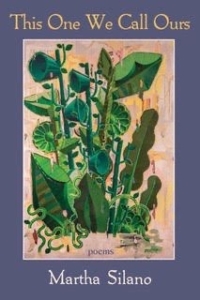 Before I forget, earlier this month I reviewed Martha Silano’s award-winning new book, This One We Call Ours, for Raven Chronicles. You can read the review here.
Before I forget, earlier this month I reviewed Martha Silano’s award-winning new book, This One We Call Ours, for Raven Chronicles. You can read the review here.
The holidays are upon us, and if you have a writer-friend, perhaps you’re wondering what book you should buy for them. Along these lines of thought, someone asked me to recommend my top 20 writing books, and I felt flummoxed. Only 20?!
What seemed more doable was to tell you about a few of the books, specifically about writing, that I’ve read this year, the ones that left the deepest footprints, the books I am most likely to reread, or to gift to my close friends.
THE WAY OF THE FEARLESS WRITER (St. Martin’s, 2022)
I stumbled across The Way of the Fearless Writer: Mindful Wisdom for a Flourishing Writing Life, by Beth  Kempton, maybe in March. I picked it up, to begin with, at my local library. After a couple chapters, I ordered my own copy and returned the library’s (with a hearty recommendation to the volunteer at the desk).
Kempton, maybe in March. I picked it up, to begin with, at my local library. After a couple chapters, I ordered my own copy and returned the library’s (with a hearty recommendation to the volunteer at the desk).
In other words, I knew almost immediately that Fearless Writer was a book I had to mark up.
To write in service of the writing, not the ego, is a radical act. (p. 24)
Kempton is a Japanologist, who has also sojourned to China, and somewhere along the way met herself on the path. She invites us to do the same—not to study Japanese or the Tao Te Ching, but to embrace writing as a way of being. The passage quoted above continues:
What if we gathered up all the energy we usually spend worrying about what other people think and poured it into our writing? What if we really lived our lives, moment to moment, and wrote about that? What if we wrote to release what is burning inside us, allowing that to be enough for now? (pp. 24-25)
Kempton arranges her book around three gates (a symbol that has, for some time, spoken to me). When I reached her chapter on the gate of emptiness, my mind flew open. I was sitting in my writing cabin, my old dog snoring beside the door, but I felt, literally, as though I were poised on a threshold, about to embark on an entirely new way of being with my work. What if we wrote in service of the writing, not the ego?
It matters that I began reading this book around the time I was finishing Red Pine’s translations of Tao Yuanming’s poems, and, before I finished Fearless, I saw the Capitol Hill premier of the documentary film about Bill Porter, AKA Red Pine, Dancing with the Dead. (If you don’t know what I’m talking about, I urge you to see this film, produced by Ward Serrill, and available now on-line; I have watched it three times.) Taken together these texts—these transcendent works of art—were transforming.
(Follow this link to learn more about Beth Kempton.)
OUT OF SILENCE, SOUND. OUT OF NOTHING, SOMETHING (Counterpoint, 2023)
 What can I say about this wonderful book of writing advice from Susan Griffin, one of the leading eco-feminist writers of our time? Most of the chapters are quite short. Quoted passages from other writers punctuate the author’s chapters (some of my favorites, Grace Paley, Robert Caro, Le Guin). For instance:
What can I say about this wonderful book of writing advice from Susan Griffin, one of the leading eco-feminist writers of our time? Most of the chapters are quite short. Quoted passages from other writers punctuate the author’s chapters (some of my favorites, Grace Paley, Robert Caro, Le Guin). For instance:
Storytelling is a tool for knowing who we are and what we want. (Ursula K. Le Guin, qtd. on p. 153)
Out of Silence is full of pithy advice about a writer’s work habits, words, sentences, metaphor, pauses, white space. But it’s never only pithy advice:
Creativity is more like a cat than a dog. You can’t order it to come to you. You just have to make yourself available until all of a sudden you find it leaping into your lap. (p. 55)
This sounds overly folksy, but I assure you I’ve underlined and highlighted passages on almost page. I first read this book last year, and I picked it up again in September when election anxiety was trying to do me in. Griffin is a wise, older guide, taking you by the hand, whispering, See, it doesn’t have to be fancy—it’s better if it’s not fancy!
I’ll leave you with this passage, from a chapter titled “Paragraphs”:
At times writers make [craft] choices logically but more often they come to us after immersing ourselves in the subject matter, after breathing the subject in, walking with it, sleeping on it, letting it fit into our dreams, coaxing it phrase by phrase into language. Sometimes, if we have pondered what approach to take for several hours or days or even weeks, the work starts to speak to us. (p. 106)
Let me emphasize one thread between these books. Kempton is concerned about attention: where our attention lies, how to command it, how to follow its lead. So is Griffin: “you will need to learn to pay attention to your own attention” (p. 7).
(To learn more about Susan Griffin, visit her website.)
TRUTH IS THE ARROW, MERCY IS THE BOW (Zando, 2024)
This book, by Steven Almond, was pressed on me by a friend. At first I found it … a little too … something. Casual? 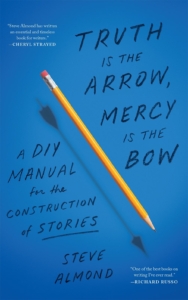 Comic? I liked it, well enough, but I let it get pushed aside by other books. Recently I picked it up again, and I’m so glad I did. I have called other writers and read passages aloud to them. (His stories about his children—Josie and the dread Babrika!—and about reading children’s books aloud, in particular.)
Comic? I liked it, well enough, but I let it get pushed aside by other books. Recently I picked it up again, and I’m so glad I did. I have called other writers and read passages aloud to them. (His stories about his children—Josie and the dread Babrika!—and about reading children’s books aloud, in particular.)
But there is so much more to this book than Almond’s entertaining and no-bullshit voice (unafraid to write about how to write about sex, unafraid to chronicle his own most humiliating moments as a parent, as a teacher, as a writer). The job of the writer, he tells us, “is to love and mourn” (p. 204). This passage, which is placed at the end of the book, echoes insights threaded throughout, and says it all for me:
We are living in an era of screen addiction and capitalist pornography. As a species, we are squandering the exalted gifts of consciousness, losing our capacity to pay attention, to imagine the suffering of others. You are a part of all of this. It involves you. This is the hard labor we are trying to perform: convincing strangers to translate our specks of ink into stories capable of generating rescue. (p. 230)
What more can I add? “You are all part of this.” Writing is not a retreat or an escape from the world and your responsibility for it. What you write matters. It’s crucial.
(All three books are available at Bookshop.org, your local independent book store, and elsewhere. To learn more about Steve Almond and his books, visit his website.)

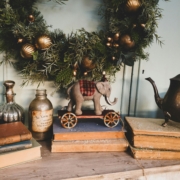

 marriage in one poem, and claim kinship with frogs in the next. Another riffs off Gerard Manley Hopkins’ “Pied Beauty,” beginning, “Praise God for damaged things.” Yes, life is messy, Doerper proclaims here, then offers praise “For mismatched mates and misdirected mail, / For bulbs of scarlet tulips, rising in a golden bloom, / For spackled spark of beauty in tender broken things…” It made me want to grab my pen and write my own poem for what’s broken.
marriage in one poem, and claim kinship with frogs in the next. Another riffs off Gerard Manley Hopkins’ “Pied Beauty,” beginning, “Praise God for damaged things.” Yes, life is messy, Doerper proclaims here, then offers praise “For mismatched mates and misdirected mail, / For bulbs of scarlet tulips, rising in a golden bloom, / For spackled spark of beauty in tender broken things…” It made me want to grab my pen and write my own poem for what’s broken.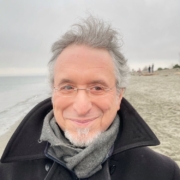
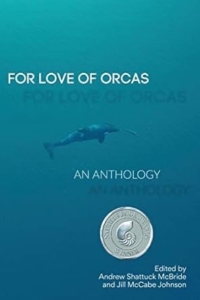 For Love of Orcas, a gorgeous tribute book published in 2019. Jed Myers’s Learning to Hold won the Wandering Aengus Press Editors’ Award, and is another beautifully written, and beautifully wrought book.
For Love of Orcas, a gorgeous tribute book published in 2019. Jed Myers’s Learning to Hold won the Wandering Aengus Press Editors’ Award, and is another beautifully written, and beautifully wrought book.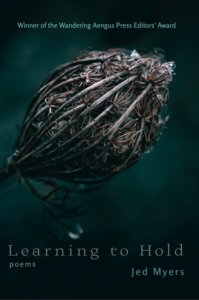 Jed Myers is the editor of
Jed Myers is the editor of 
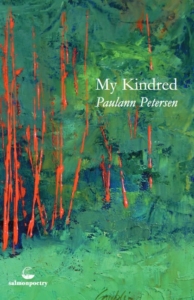 Petersen has an impressive biography, including being the Oregon poet laureate. I am indebted to Olympia Poetry Network’s
Petersen has an impressive biography, including being the Oregon poet laureate. I am indebted to Olympia Poetry Network’s